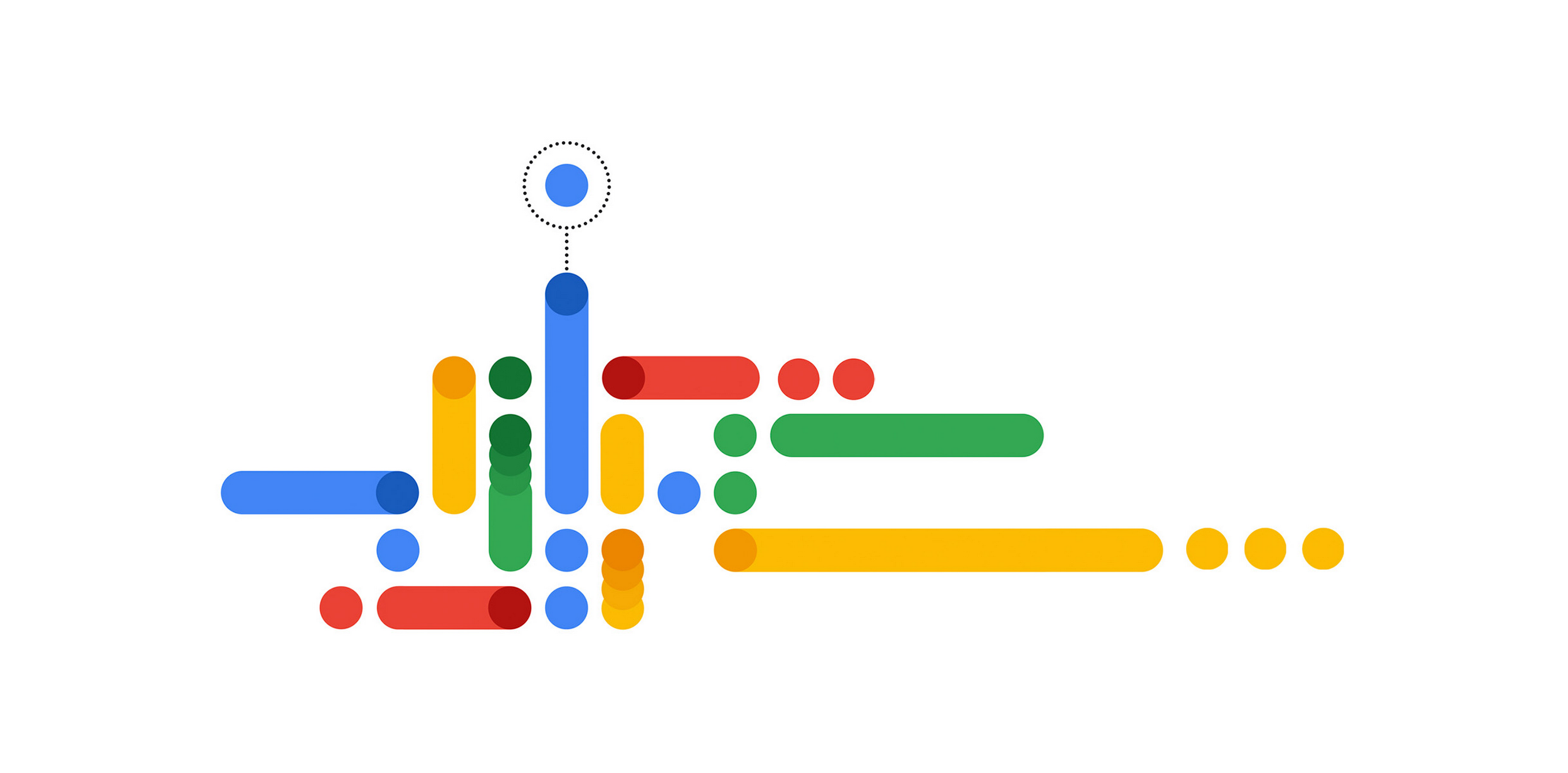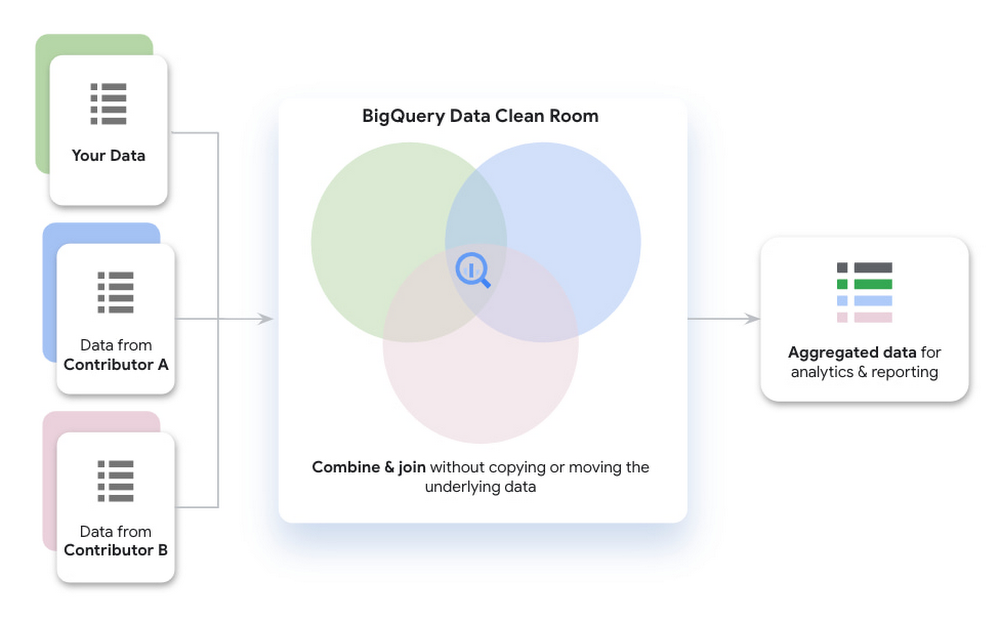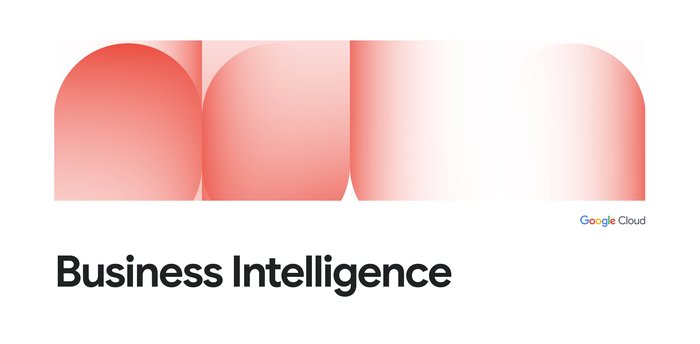Secure and privacy-centric sharing with data clean rooms in BigQuery

Nikhil Gaekwad
Product Management Lead
Angela Soares
Product Marketing Manager, Google Cloud
Businesses across industries share data, combining first-party data with external sources to obtain new insights and collaborate with partners. In fact, 6000+ organizations share over 275 PBs of data across organizational boundaries every week using BigQuery. Last year, we launched in market Analytics Hub, built on BigQuery, which lets customers share and exchange data cost-effectively, while helping to minimize data movement challenges. However, customers share many types of data, some of which may be subject to more stringent regulatory and privacy requirements. In those cases customers may require extra layers of protection to analyze multi-channel marketing data and securely collaborate with business partners across different industries.
To help, we’re introducing BigQuery data clean rooms, coming in Q3, to help organizations create and manage secure environments for privacy-centric data sharing, analysis, and collaboration across organizations — all without generally needing to move or copy data.
Data clean rooms can help large enterprises to understand audiences while respecting user privacy and data security. For example, with BigQuery data clean rooms:
Retailers can optimize marketing and promotional activities by combining POS data from retail locations and marketing data from CPG companies
Financial Services enterprises can improve fraud detection by combining sensitive data from other financial and government agencies or build credit risk scoring by aggregating customer data across multiple banks
In the healthcare industry, doctors and pharmaceutical researchers can share data within a clean room to learn how patients are reacting to treatments.
These are just a few of the use cases that BigQuery data clean rooms can enable. Let’s take a look at how it works.
Deploy data clean rooms in minutes
Data clean rooms will be available in all BigQuery regions through Analytics Hub, and can be created and deployed in minutes. Customers can use Google Cloud console or APIs to create secure clean room environments, and invite partners or other participants to contribute data.
Data contributors can publish tables or views within a clean room and aggregate, anonymize, and help protect sensitive information. They can also configure analysis rules to restrict the types of queries that can be run against the data. More importantly, adding data to a clean room does not generally require creating a copy or moving the data; it can be shared in-place and remain under the control of the data contributor. Finally, data subscriber customers will be able to discover and subscribe to clean rooms where they can perform privacy-centric queries within their own project.
Shared data within a clean room can be live and up-to-date — any changes to shared tables or views are immediately available to subscribers. Data contributors also receive aggregated logs and metrics to understand how their data is being used within a clean room.


There are no additional costs for BigQuery customers associated with using BigQuery data clean rooms. When collaborating with multiple partners, data contributors only pay for the storage of the data and subscribers of data clean rooms only pay for the queries.
Note: For organizations that need to run general-purpose applications on sensitive data with hardware-backed confidentiality and privacy guarantees, Google Cloud offers Confidential Space, which recently became generally available.
Partners enabling data clean rooms in BigQuery
Data clean rooms capabilities in BigQuery are enabled today by our partnerships with Habu and LiveRamp. With Habu, a data collaboration platform for privacy-centric data orchestration, customers like L’Oréal are working with Google Cloud and Habu to help securely share data. “We are thrilled to be among the first to work within the BigQuery and Habu environment. The ability to safely and securely access and analyze more data, without tapping into data science resources, has empowered us to better understand our customers and measure the true impact of our marketing activities,” said Shenan Reed, SVP Head of Media at L’Oréal.
“Our partnership with Google Cloud exemplifies our commitment to deliver frictionless collaboration across an open technology ecosystem. Democratizing clean room access and delivering the privacy-centric tools that brands demand is opening up new avenues for growth for our shared customers,” said Matt Kilmartin, Co-founder and CEO of Habu.
LiveRamp on Google Cloud can enable privacy-centric data collaboration and identity resolution within BigQuery to drive more effective data partnerships. LiveRamp’s solution in BigQuery unlocks the value of a customer’s first-party data and establishes a privacy-centric identity data model that can accurately:
Improve consolidation of both offline and online records for a more accurate and holistic view of customer audience profiles
Activate audiences securely with improved match rates for greater reach and measurement quality
Connect customer and prospect data with online media reports and partner data elements to help improve customer journeys and attribution insights using ML models
“LiveRamp has developed deep support for accurate and privacy-safe data connectivity throughout the Google ecosystem. As one of the first clean room providers on Google Cloud with our Data Collaboration Platform, we have been very excited to watch the evolution of Analytics Hub into a powerful native clean room solution for the entire BigQuery ecosystem. Our continued work with Google Cloud is focused on allowing global clients to more easily connect and collaborate with data, driving more impactful audience modeling and planning, and ensuring that they can extend the utility of data natively on BigQuery both safely and securely,” said Max Parris, Head of Identity Resolution Products, LiveRamp.
Finally, Lytics is a customer data platform built on BigQuery. The composable CDP helps enterprises running on Google Cloud use data to transform how they do business and build relationships. This includes tooling for customer data infrastructure, data hygiene, activation, and reporting; all to support brands in their efforts to scale and leverage customer data to uncover meaningful insights they can act on. Lytics also offers a data clean room solution built from the collaboration with BigQuery and delivers features for managing and processing data, ingestion, consolidation, enrichment, stitching, and entity resolution. The solution utilizes Google Cloud’s exchange-level permissions and can unify data without exposing PII, thereby allowing customers to leverage data across their organization, while avoiding data duplication and limiting privacy risks.
Take the next step
Want to learn more about BigQuery data clean rooms? Join the upcoming BigQuery customer roadmap session, speak to a member of the Data Analytics team to inquire about early access, or reach out to Habu to get started today with your data clean room. For marketers who are looking to use a clean room to better understand Google and YouTube campaign performance and leverage first party data in a privacy-centric way, Ads Data Hub for Marketers, built on BigQuery, is Google’s advertising measurement solution.

